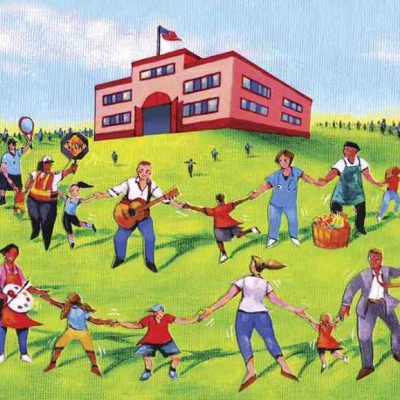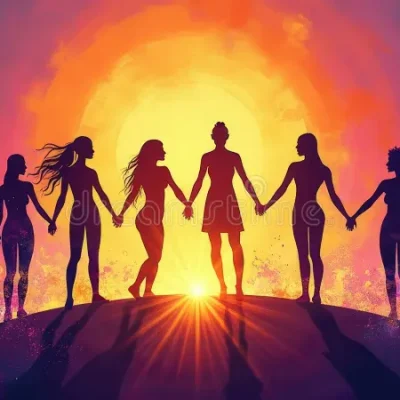Uniting the workplace with David Pritchard
Have you ever had a rights violation in your working environment? Have you had your rights purposefully concealed? Have you been exploited for the labor you do? That one was a trick question, according to David Pritchard, union representative and organizer for UAW Local 2322. Every worker has been exploited. Their labor is constantly undervalued and underappreciated. Worker rights have only been dwindling in effectiveness. And yet, in all of this hopelessness, Pritchard sees unions as the piercing light.
First off, what exactly is a union? The simple definition from the US I I Department of Labor states that, “A labor union is a group of two or more employees who join together to advance common interests such as wages, benefits, schedules, and other employment terms and conditions.” Typically, unions are much more complex than that. Pritchard expresses that they “really provide an avenue by which workers can take collective action and get collective results for everyone.” They serve to amplify workers’ voices by collectively demanding action.
With this abstract definition, it might be hard to visualize a concrete example. Pritchard recollects his own experience in a union. “When I was a grad student because I was in a union, I had health insurance, I didn’t have to pay tuition, I could count on getting regular raises. But also, I was able to address issues in my workplace… If I had not kind of come into that union context, I would have been at the mercy of my bosses.” Without his position in the union, he wouldn’t be able to be entitled to things like security, stability, and a voice to speak out.
Unions are not strictly confined to only helping their members. They serve to uphold the legal boundary floor to a better workplace for everyone. “There is this concept known as bargaining for the common good, which is essentially a philosophy where, irrespective of what your union is, irrespective of whether it’s public or private sector, when you are putting proposals on the bargaining table, you’re not just saying like, Oh, let’s benefit these workers. You’re saying, ‘Let’s improve the community in which these people work’”. Their goal is to better the workplace in general, not just for their members.
Typically, a person’s first introduction to unions would be because of a strike they saw on the news. Crowds of people holding signs beckoning for their rights, interviews of people detailing the comfort they sacrifice for the sake of their income, and even occasionally outrage and anger with screaming and arguing. However, behind the scenes, working at a union may seem a little more mundane. Pritchard says his job “looks like an office job insofar as I work at UMass Amherst and work out of an office. Like, you know, potentially from nine to five, but it’s complicated. It depends on the day, it depends on what issues come up, it depends on whether I’m bargaining or not. I guess the best answer to your question is, there’s not really a typical day.” Despite the difference in drama and flair, this does not subtract from the fact that it’s just as crucial of a role in unions as strikes and riots. He often serves as the mediator between employer and employee and proposes a mutual agreement for both. However, if either side refuses to agree, then that is the time for a strike.
One large reason people do not join unions is that they believe that things will get better on their own. This is certainly not the case with worker rights, Pritchard argues. “The way that law works is that it’s never like a silver bullet. It’s always subject to the interpretations of judges, the National Labor Relations Board, and so on and so forth. And so I think (that) the right wing of the United States has made a concerted push to erode rights and protections.“ In fact, he believes that worker rights have been declining since the moment they were introduced.
Despite deteriorating worker rights, that doesn’t mean their conditions cannot improve. With the combined effort of united workers and the assistance of unions, they can raise the standard of work. Pritchard insists that “when workers take action, it doesn’t matter whether or not the Supreme Court thinks that something is legal, because you can get what you want through collective power and collective action. It’s faster and more consistent than just kind of crossing your fingers and hoping the Supreme Court will side with you.” The power is with the people.
When people shout these types of slogans, there is a specific type of person that comes to mind. Older people. People who, with their age and experience, have become disillusioned with their working conditions. However, Pritchard emphasizes the importance of youth within unions, stating “they learn how to be treated with dignity and respect.” The easiest way employers take advantage is to keep employees ignorant of their worth. When the youth join unions, they can judge the value of their labor without someone impeding their vision.
Please contact your local union for further information.










